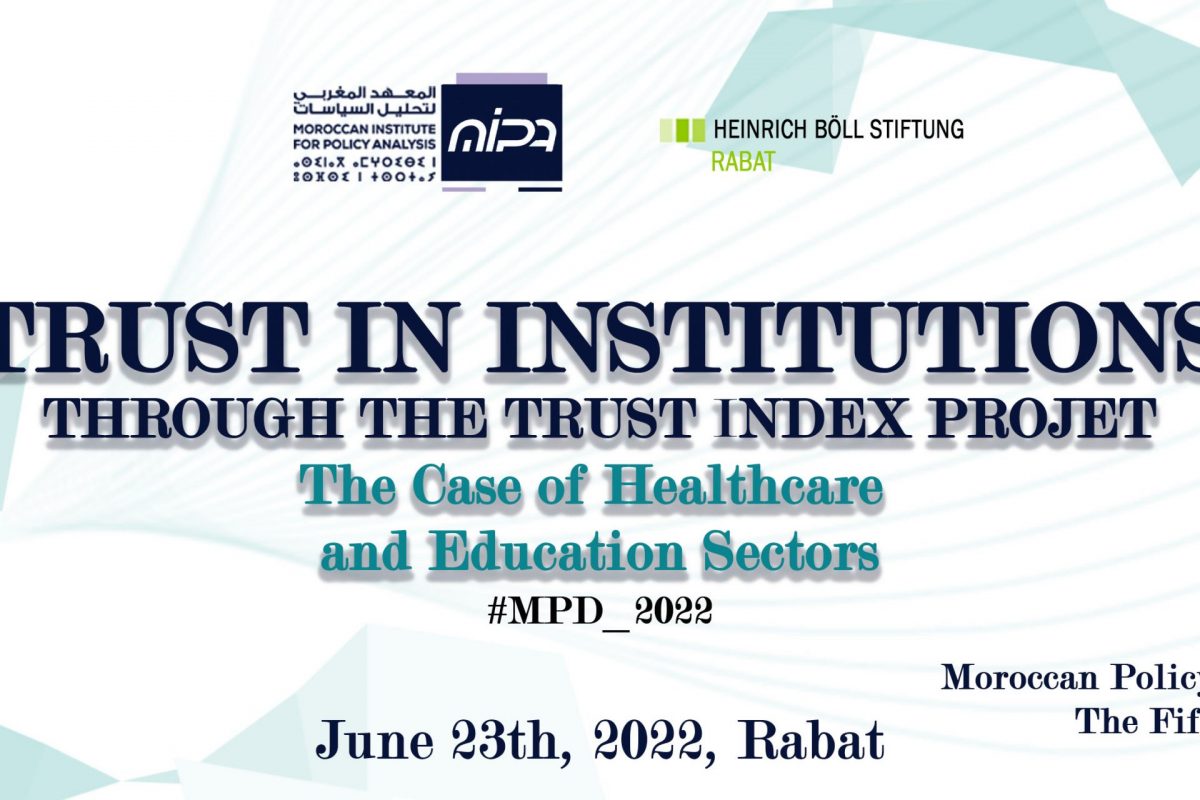[vc_row][vc_column][vc_column_text]
On Monday, February 24, 2020 in Rabat, the Moroccan Institute for Policy Analysis organized a seminar to present the findings of the “Maghreb Integration Report”, which was carried out with the support of the POMED Foundation.
The “Maghreb Integration Report” aims to move beyond the top-down approach for integration, which focuses on political, economic and institutional aspects, and instead provides a bottom-up approach that monitors the representations of citizens, researchers, non-state actors as well as civil society.
This report intend to provide a platform for public debate on the topic of Maghreb integration, provide recommendations to decision makers in order to support the fast-tracking of bottom-up integration among the Maghreb countries, and to think about non-conventional solutions to the stumbling of Maghreb integration issue. The report mainly aims to provide evidence-based analysis that helps policymakers, civil society organizations, academics and journalists in the development of a new vision for the Maghreb integration topic.
The report reached a set of results, the most important of which can be presented as follows:
- About 47% of interviewees stated that they have a kinship with Maghreb citizens. Algeria and Tunisia are the countries in which most interviewees say they have kinships with them, at 45 and 34%, respectively.
- Moroccan interviewees show a clear preference for living in Tunisia, up to 53% of all interviewees if they were given the opportunity to live in a Maghreb country other than Morocco.
- The result of the study showed that most Moroccan citizens are optimistic about the future of the region. As 58% of the interviewees expressed their optimism about the future of the Maghreb Union, while 42% expressed their lack of optimism.
- 95% of interviewees expressed their conviction that the economic exchange among Maghreb countries will enhance the Maghreb integration, and 83% of them confirmed that the conflict between Morocco and Algeria is the main obstacle hindering the Maghreb Union project.
- 89% of interviewees stated that the borders between Morocco and Algeria should be reopened. 95% of the older age group (50 years and over) expressed their wish to see the borders between Morocco and Algeria open, while this percentage drops to about 85% among the 18-24 age group.
- The interviewees put “political differences between Maghreb countries” first on the list of factors by up to 48%. Comes second “some countries of the region desire to dominate” by up to 23%, which in turn is a political factor that may explain some of the political differences between Union Countries. This confirms that the interviewees attributed the failure of the Union to political factors in the first place. Then comes the third factor which is “fear of economic openness” by 5%, “stereotypes about the people of the Maghreb” by 6% and “the exclusion of the Amazigh culture in the countries of the Maghreb” by 5%.
The Moroccan Institute for Policy Analysis is an independent policy research institute whose analyses cover various political, economic and social fields. It seeks, through its work, to provide advice for actors, governmental and non-governmental foundations, and civil society organizations of all kinds, according to strict methodological rules that rely on impartiality and accuracy.
[/vc_column_text][/vc_column][/vc_row][vc_row][vc_column][vc_gallery interval=”3″ images=”7393,7392,7391,7390,7389,7388,7400,7387″ img_size=”full”][/vc_column][/vc_row]
MIPA Institute
MIPA is a non-profit independent research institution based in Rabat, Morocco. Founded by a group of transdisciplinary researchers, MIPA’s mission is to produce systematic and in-depth analysis of relevant policy issues that lead to new and innovative ideas for solving some of the most pressing issues relating to democracy.

 1209
1209 6 min
6 min

